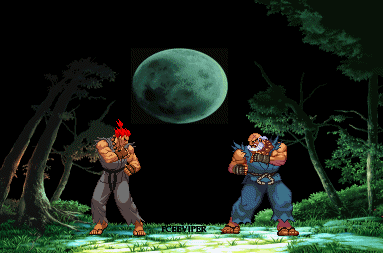
Dec 29, 2006
Japanese video game publisher Capcom, which has licensed its original franchise "Resident Evil" to Impact Pictures and Sony Pictures, recently stepped into the movie production game with an original "Street Fighter" movie due in 2008. It is partnering with Hyde Park Entertainment on a new film that focuses on Chung Li, one of the most popular fighters from the game franchise.
Capcom is exploring the other end of convergence as well. After decades of creating such original game franchises as "Devil May Cry," "Lost Planet," "Dead Rising" and "Onimusha" (which has a film in development at Davis Films), it has hired Germaine Gioia to serve in the newly created post of senior vp licensing in its Los Angeles office. She will liaison with Hollywood to find properties that can work as Capcom games.
Gioia spent 13 years at THQ, where she helped build that game publisher from a small Nintendo Game Boy software maker into a heavyweight in the industry through strong children's licenses from Nickelodeon ("SpongeBob SquarePants," "Rugrats," "Fairly OddParents"), Disney/Pixar ("Cars," "Finding Nemo," "The Incredibles") and 20th Century Fox/MGA ("Bratz").
At THQ, Gioia worked with Nickelodeon to form a partnership that allowed games like "Tak and the Power of JuJu" to cross over to TV shows and hit shows like "Jimmy Neutron: Boy Genius" to succeed in the interactive space.
"It began a tradition of looking at mass-market and mainstream licenses that could appropriately target a really broad audience, not only in North America but in Europe," Gioia said. "As game development became more expensive, it really, clearly became important."
Advertisement
During the past few years, such Japanese game publishers as Sega, Konami, Namco Bandai and now Capcom have targeted Hollywood licenses to gain a foothold in the U.S.
"I think it is becoming clear that the very largest successful publishers are delivering more and more of a balance to the marketplace," Gioia said. "They need (not only) their own intellectual property and good solid original development but (also) licensed product that can reach across cultures."
Gioia said that with next-generation gaming development costs reaching peaks of $10 million-$12 million to develop a game for a single platform, Hollywood licenses become important to reach a broad enough audience to have sales of close to a million units at launch.
Capcom has a rich history of games aimed at the older gaming audience, especially with such Mature-rated franchises as "Resident Evil," "Dead Rising" and "Devil May Cry." But Gioia said she's looking at a broad range of Hollywood licenses to incorporate into the Capcom catalog.
Gioia said that given Capcom's strong internal development studios, a marriage between the makers of these hit originals with strong Hollywood properties backed by solid marketing support should bode well for the company.
"I think it could be a fairly important and successful combination," she said. "Capcom believes that it's something that they are very interested in trying."
The "Resident Evil" movie franchise, with a third film in production, is the second-most-successful franchise for Sony Pictures behind "Spider-Man." With the film rights to "Onimusha" and "Devil May Cry" already purchased, Gioia believes Capcom could work more closely with Hollywood to release new games in these franchises around the launch of theatrical or DVD releases of the films.
Gioia said that while in the past all Hollywood producers had to travel to Japan to talk to Capcom about licensing games for the big screen, she believes some employees from Japan will move to the Los Angeles office to make this door more accessible.
Hardcore gamers won't have to worry about Capcom abandoning its core franchises. Gioia said the company will remain focused on developing existing franchises and introducing games targeted at Capcom's core gamer. She said the Hollywood licenses that Capcom does create will be made by the same creators that make the original franchises.
"For the near-term, I'm going to look at the game engines that Capcom has and the capabilities internally at the studios and presumably see if there are things we can take advantage of with properties that might do well with recognizable characters or story lines associated with existing game engines," Gioia said. "But that always doesn't work, so it might be a while before certain licensed properties that have been developed from the ground up are out in the marketplace."
By John Gaudiosi







No comments:
Post a Comment